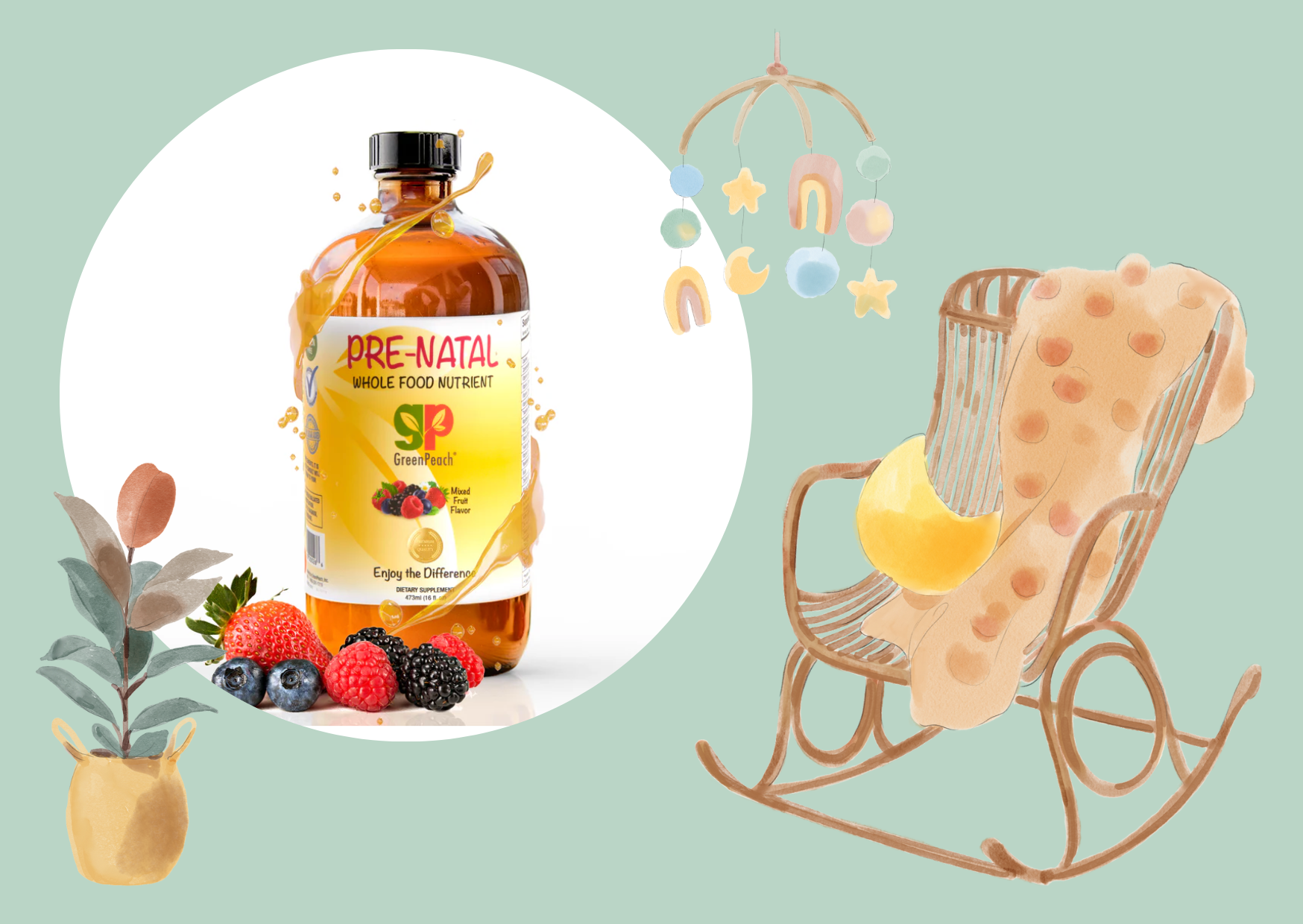
Why Should You Consider Whole Foods Prenatal Vitamins for Your Pregnancy Journey?
As expectant parents embark on the exciting journey of pregnancy, ensuring optimal nutrition becomes paramount for the health and development of both mother and baby. In this pursuit, the choice of prenatal vitamins plays a crucial role. While traditional supplements have long been the norm, an increasing number of parents are turning to whole foods prenatal vitamins for their holistic approach to supplementation.
Unlike their synthetic counterparts, whole foods prenatal vitamins offer a natural and comprehensive source of essential nutrients derived from real food sources. In the following sections, we will know the reasons why whole foods prenatal vitamins are garnering attention and why they may be the ideal choice for expectant mothers navigating the path of pregnancy.
What Are Prenatal Vitamins?
Prenatal vitamins are specially formulated supplements designed to support the nutritional needs of pregnant women and their developing babies. They typically contain a combination of essential vitamins and minerals crucial for maternal health and fetal development during pregnancy. These nutrients include folic acid, iron, calcium, vitamin D, and various B vitamins such as B6 and B12. Prenatal vitamins are intended to complement a healthy diet and ensure that both mother and baby receive adequate nutrition throughout pregnancy.
What Are Whole Foods Prenatal Vitamins?

Whole-food prenatal vitamins differ from traditional prenatal supplements in that they are sourced from natural, whole-food sources rather than synthetic ingredients.
Instead of isolating specific vitamins and minerals in their pure form, whole-food prenatal vitamins contain nutrients derived from whole foods such as fruits, vegetables, grains, and herbs. This approach aims to provide nutrients in a more bioavailable and easily digestible form, mimicking the way they are found in nature.
By utilizing whole food sources, these prenatal vitamins offer a broader spectrum of nutrients that work synergistically to support maternal health and fetal development. In addition to essential vitamins and minerals, whole foods prenatal vitamins may also contain phytonutrients, antioxidants, and other beneficial compounds found naturally in fruits and vegetables.
This holistic approach to supplementation aligns with the principles of a balanced and nutritious diet, promoting overall health and well-being for expectant mothers and their babies.
6 Reasons Why Whole Foods Prenatal Vitamins Are Ideal for Pregnant Women
Whole foods prenatal vitamins offer several benefits for expectant mothers and their developing babies, including:
-
Enhanced Nutrient Absorption: Whole-food prenatal vitamins include nutrients in their natural form, often accompanied by their original dietary fibers, fats, and proteins, which can help in their absorption and utilization by the body. This bioavailability is crucial during pregnancy, when the body's demand for certain nutrients increases significantly to support fetal development.
-
Comprehensive Nutrient Profile: These vitamins typically encompass a wider variety of nutrients compared to standard prenatal vitamins. For example, they might include a range of B vitamins, trace elements like selenium and manganese, and antioxidants from natural sources, all of which contribute to reducing oxidative stress and enhancing cellular health in both the mother and the developing fetus.
-
Safety and Dosage Control: Whole-food-based supplements do not isolate nutrients in high concentrations, which minimizes the risks of overdosing. This is particularly important for fat-soluble vitamins such as Vitamin A, which can be harmful in high doses during pregnancy. Whole-food vitamins maintain nutrient levels that reflect those found in a healthy diet, providing a balanced intake.
-
Digestive Comfort: The natural composition of whole foods prenatal vitamins often includes digestive enzymes and probiotics that aid in digestion. This can be especially beneficial during pregnancy, a time when many women experience gastrointestinal discomfort due to hormonal changes and physical adjustments.
-
Purity from Harmful Additives: These vitamins are generally formulated without the synthetic fillers, binders, and artificial colors commonly found in other prenatal supplements. This aspect of whole foods vitamins can be particularly appealing for expectant mothers looking to maintain a clean and natural lifestyle.
- Holistic Health Benefits: Beyond meeting specific nutritional needs, the holistic nature of nutrients from whole foods can support a wider range of health benefits. This includes better immune function, improved energy levels, and stronger hair and nails, which are often concerns during pregnancy due to hormonal shifts and increased nutritional demands.
When choosing prenatal vitamins, it’s crucial to ensure they provide adequate folic acid, iron, and calcium—nutrients indispensable for healthy fetal development. Whole-food prenatal vitamins can often meet these needs in a form that some find more natural and gentle.
However, every pregnancy is unique, and dietary supplements should be tailored to individual nutritional needs, discussed, and approved by a healthcare provider. This ensures both the health of the mother and optimal fetal development are well-supported throughout the pregnancy journey.
When Should Pregnant Women Start Taking Prenatal Vitamins?
It's ideal to begin taking prenatal vitamins before conception. This is particularly important for folic acid, a critical nutrient that helps prevent neural tube defects such as spina bifida. These defects can occur very early in pregnancy, often before many women even know they're pregnant. Therefore, if you are planning to become pregnant, starting prenatal vitamins three months before conception is recommended.
Continuing to take prenatal vitamins throughout the pregnancy supports the ongoing development of the fetus and helps meet the increased nutritional demands of the mother's body. It's also beneficial to continue these vitamins postpartum, especially if breastfeeding, to ensure both the mother and baby receive adequate nutrition.
Do Prenatal Vitamins Have Any Side Effects?
While prenatal vitamins are generally safe, they can cause side effects in some women. The most common side effects include nausea and constipation, which are often exacerbated by the increased iron content in these supplements. Taking your prenatal vitamins with a meal or just before bedtime may help alleviate nausea.
In some cases, prenatal vitamins may also cause stomach upset or cramping. If these symptoms are severe, switching brands or formulations, perhaps to a whole foods-based vitamin, might help. Always discuss any persistent or bothersome side effects with a healthcare provider to ensure there isn't a more serious underlying issue and to find a suitable alternative if necessary.
Additionally, too much of certain nutrients, like vitamin A from animal sources (retinol), can be harmful during pregnancy, emphasizing the importance of not exceeding the recommended doses unless advised by a healthcare professional. Proper guidance ensures that both the mother's and baby's needs are safely met, supporting a healthy pregnancy journey.
Conclusion
Whole foods prenatal vitamins offer a natural and holistic approach to supplementation for pregnant women, providing essential nutrients in a form that is easily recognized and utilized by the body. By incorporating whole food sources of vitamins and minerals into their diet, expectant mothers can support optimal maternal health and fetal development throughout pregnancy.
Choosing whole foods prenatal vitamins ensures comprehensive nutrition and promotes digestive comfort and overall well-being for both mother and baby. As such, considering whole foods prenatal vitamins for the pregnancy journey can be a beneficial choice for parents seeking the best possible start for their growing family.

